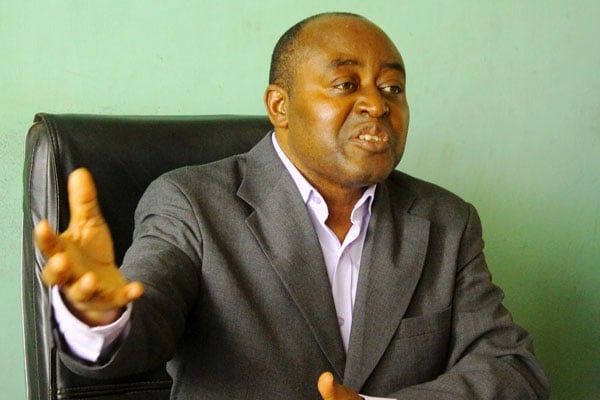We are no longer a colony, government tells EU envoys

Mr Ofwono Opondo, government spokesperson
Kampala- The government yesterday responded with derision to criticism by the European Union that reforms it has presented to Parliament were cosmetic and don’t address substantive issues needed for free and fair elections.
A government spokesperson said yesterday that Uganda’s electoral laws have been improved over time and can deliver a credible election despite misgivings by EU envoys, Opposition politicians and civil society.
“Uganda is not their colony anymore and therefore, we do not hold elections for their satisfaction,” Mr Ofwono Opondo, the government Media Centre director, said in an interview yesterday.
A delegation of EU ambassadors held a closed-door meeting with the Speaker of Parliament, Ms Rebecca Kadaga, last Friday during which they questioned the credibility of the 2016 general election.
This, according to the envoys, was because government has ignored demands for meaningful reforms of electoral laws, including establishment of an independent EC.
However, Mr Opondo said electoral laws and electoral management have progressively improved.
“We have no doubt that the ongoing processes will give a credible process, including election results,” he added.
Mr Opondo said the proposals contained in the Constitutional (amendment) were not cast in stone.
“They are disappointed that their allies in the Opposition are complaining. Government put proposals before Parliament, which can be amended, deleted or added,” Mr Opondo said.
Yesterday, the EU Delegation to Uganda clarified that while it stands by the contents of the story published by Daily Monitor of yesterday, “the EU has not passed a verdict on the credibility of the 2016 general elections.”
“As you are aware, at the conclusion of the 2011 general elections, the EU Electoral Observation Mission fell short of describing that election as free and fair. The observers cited electoral reform as one of the key recommendations needed for address. It is, therefore, a missed opportunity that the last four years have not addressed some of these recommendations,” Mr Emmanuel Gyezaho, the EU press and information officer, said.
The Electoral Commission also yesterday downplayed the demand for reforms and the stance by the Opposition and civil society for an independent Commission.
The EC said there are enough safeguards in the existing laws, including the proposed use of biometric data captured during the registration for the national identity cards to fire-proof the polls from any rigging.
“We are going to have free and fair elections. An election is about a registration that is publicly verifiable. When carrying out the registration, we captured bio-data, fingerprints, pictures and digital signatures. There were no multiple registrations and, therefore, there will not be multiple voting,” EC spokesperson Jotham Taremwa stated.
He said electoral reform debate had been over politicised. “The President appoints the Judicial Service Commission (JSC). What difference does it make for the JSC to select members of the EC? That argument falls short of any analysis. It’s been politicised, it is more political than legal.”
In response, Mr Medard Lubega Sseggona (Busiro East), also shadow minister for constitutional affairs, said the EC was an interested party to comment on its composition and reforms.
“The EC is in the dock and therefore not sober enough to speak about reforms. The manner in which they are appointed makes them biased. The process of appointing the JSC is different. The members of the EC are not screened professionally. If EC thinks that by the JSC screening and recommending their appointment, similar results will be produced, then why speak against it,” he said.




